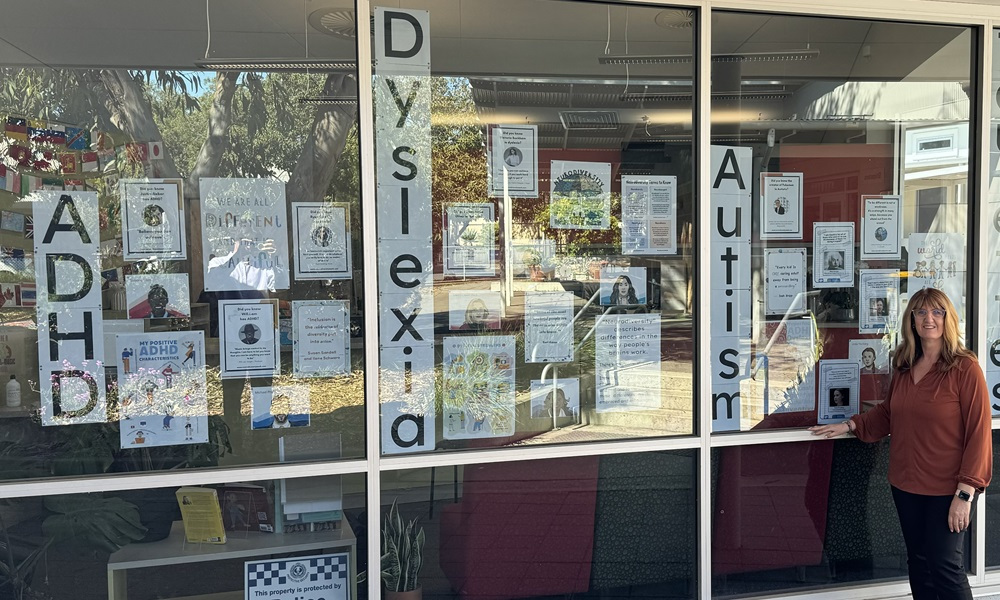The winners of the 2024 Teacher Awards have been announced. In today’s article, we speak with the winner of the Cultivating an Inclusive and Positive Culture Award, Cathy Cook from Marryatville Primary School in South Australia, about the work she’s been recognised for in her role as Autism Inclusion Teacher.
Effective school leaders and educators place a high priority on creating and maintaining an environment in which all students, and staff, can thrive and succeed. The Cultivating an Inclusive and Positive Culture category in the Teacher Awards celebrates the efforts of an individual or team in cultivating an inclusive and positive school culture, which can promote learning outcomes and wellbeing.
This year’s winner, Cathy Cook, is an Autism Inclusion Teacher at Marryatville Primary School in South Australia. The Judging Panel recognised her for her comprehensive approach to inclusion. ‘Cathy Cook’s work as an autism inclusion specialist showcases a multifaceted approach to connecting to students, their families, and the wider education community,’ said one panellist. ‘Her targeted programs set high standards for inclusion and belonging in her school. The use of action research strategies strengthens her inclusion goals and allows for reflection and improvement.’
‘Winning the Cultivating an Inclusive and Positive Culture Award means the world to me,’ Cook tells Teacher. ‘I'm thrilled to be an advocate and champion for autism/neurodiversity and that my work of building a sense of belonging, understanding and inclusive environment has been recognised. This award inspires me to continue growing, learning, and finding even more ways to actively engage and involve my site's staff and students and foster a culture of inclusion.’
A comprehensive approach
‘Creating an inclusive and positive culture is incredibly important to me because every student deserves to feel valued, understood, and noticed to succeed. When students feel a sense of belonging, I believe they are more engaged, confident, and open to learning.’ Cook shares. ‘My comprehensive approach ensures that we address individual needs and build a school-wide culture that celebrates diversity and fosters acceptance. It's about creating an environment where every child can thrive and where differences are seen as strengths that enrich our community.’
Cook’s role as Autism Inclusion Teacher involves upskilling staff and working closely with students with neurodiversity. She also formed and leads the school’s Autism Action Team, which is comprised of teachers and Student Support Officers and focuses on driving initiatives that promote inclusivity and awareness across the school. Cook has led many other initiatives at the school, including implementing a student tracking template, creating staff and student surveys, purchasing books and resources to promote diversity, and leading an action research project on the impact of explicitly teaching about neurodiversity.
‘I am incredibly grateful and honoured to be the Autism Inclusion Teacher at my site. It's a role that fills me with excitement for the possibilities and initiatives we have in store as we continue to build an inclusive and supportive environment for all students. I greatly appreciate the extensive support from our leadership and staff. It truly makes a positive difference in driving forward the impactful work we do together.’
Working with parents and colleagues
One element of this award’s criteria is that parents and carers are valued as important partners in their child's learning. In her nomination document, Cook shared that she has established regular communication with parents through newsletters, display boards, informational materials and events, including practical tips for supporting learning at home. As well as this, she invited parents and carers to visit the school’s ‘Regulation Space’ to understand its benefits, and build trust and collaboration between the school and families.
The Judging Panel were also looking for evidence of professional learning to build staff competency related to diversity. In her role, Cook says she works to upskill staff and deliver professional learning to colleagues to foster a deeper understanding and acceptance of autism and other neurodiversity within the school. For example, this includes preparing and delivering professional development sessions with teachers and Student Support Officers that cover understanding autism, implementing sensory-friendly classroom environments, and social-emotional learning techniques.
‘The professional development sessions had a significant impact on our site,’ Cook wrote in her nomination. ‘Teachers reported increased confidence in implementing inclusive practices and observed positive changes in classroom dynamics. Student engagement and participation improved, particularly among those with autism, as teachers were better equipped to meet their needs.’
Another of Cook’s initiatives has been the development of classroom sensory boxes – boxes that contain sensory tools to help students self-regulate and manage their emotions in the classroom. ‘Teachers reported that students could better manage their emotions and focus during lessons and the boxes were used regularly,’ Cook explains. ‘The students appreciated having access to resources that helped them feel more comfortable and secure in the classroom.’
Embracing diversity as a strength
‘My advice for leaders and teachers looking to improve their practice in inclusive education and embrace neurodiversity is to approach it with passion, drive, and a genuine commitment to making a difference,’ Cook says.
‘Form a strong and passionate Autism Action Team who are willing to make a committed effort to see and be a positive change. It's essential to bring neurodiversity to the forefront, ensuring students feel seen, understood and respected.
‘Be willing to seek advice, learn from others, and continually grow your knowledge and practice. Creating a truly inclusive environment takes collaboration, reflection, and creativity, but the positive impact on students' lives makes it all worthwhile. Remember, together, we can create a space where every child thrives.’
Some of the initiatives Cathy Cook has implemented include student surveys and purchasing books and resources to promote diversity. What strategies does your school have in place to ensure all students feel seen, understood and respected?



